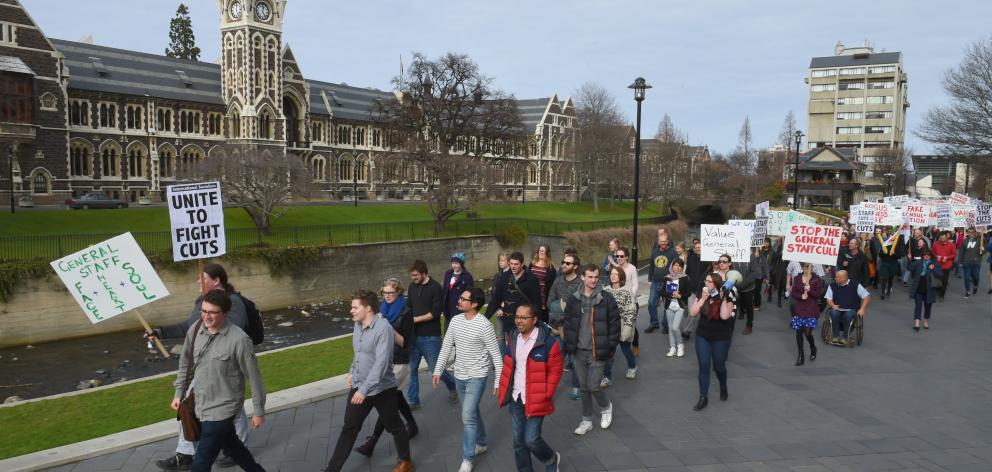
Restructurings bring with them uncertainty, losses and change.
Given the size of the "support services review" — the university has had about 2300 general staff — effects are magnified. Not only were 182 full-time equivalent jobs to disappear (the figure is now 160), with positions changed and some staff offered a relocation at a lower level, but also there is a switch from decentralised jobs in departments to centralised support.
In the hard world of reality, money matters, and the university has to run as efficiently as possible. It has had to make hard-headed decisions about academic staffing in departments with falling roles, and it cannot ignore costs in other areas.
One of the biggest of these is in support staff, be that in administration, IT, marketing. It would appear, on figures recently produced for the university’s council, Otago has the highest ratio of support staff to academics in New Zealand’s seven largest universities.
Many administrative and support staff have also been well paid compared to many in Dunedin’s private sector. There had not been a thorough review for more than 20 years, and it is little wonder the university saw scope both to save money and to tackle all the anomalies and different ways of working that had arisen across its campuses.
Three years on, morale at the university is as low as numerous academic and support staff can remember.
Yet, the restructuring is still incomplete.
Horror stories abound about the stress of job uncertainty, including living on temporary employment agreements, over such a long time.
The first delays, in 2016, were cautiously welcomed as a "chance to get it right". A rushed process would, indeed, have been disastrous. But the drawn-out operation has caused mounting disenchantment.
The university has cited lots of duplication, uneven service across departments and general inefficiencies.
Vice-chancellor Harlene Hayne, at one point, said the restructuring could save $16.7 million a year and release more than 7000sq m of space.
Savings could be spent on improving research and academic endeavours.
Big issues, however, with centralisation include the loss of local human faces, the disappearance of department institutional knowledge, the lack of help immediately on hand, the loss of staff day-to-day oiling the wheels of departments and acting as personal contact for students and staff.
Disillusionment with the university manifests itself in costly ways. Good staff leave, and recruitment becomes trickier.
We must hope, nonetheless, as appointments continue to be made and more and more staff know where they stand, that the worst will soon be over.
We must hope the university can rekindle affection and loyalty among disappointed general and disenchanted academic staff, especially as the university approaches its 150th anniversary next year.
The restructuring has come at a time when rolls — in a competitive tertiary sector with falling overall enrolments — have been increasing again, albeit slightly. Staff have continued to do their work, and students have been shielded from much of the angst and dissatisfaction.
What is done is done and the former support system cannot — at least in the foreseeable future — be put together again.
It is hard to believe claims the restructuring has gone well, even if it was always going to be unpopular.
It has gone on for too long and the personal and institutional damage is palpable.
University leadership and staff themselves face the challenge of making the most of the current predicament.
That will be vital for the continued success and reputation of the institution, and, for that matter, Dunedin itself.
Comments
Three years is a long time. Too long. Right at the start of the process, experts in organisational change management, with a lot of real world, research and teaching experience offered to help get it right. They were rebuffed. Now staff are seeing what can only be described as favouritism as some are mapped to roles without interviews while others, with arguably more experience and qualifications are not. This leaves suspicion, discontent and little hope for improvement.












